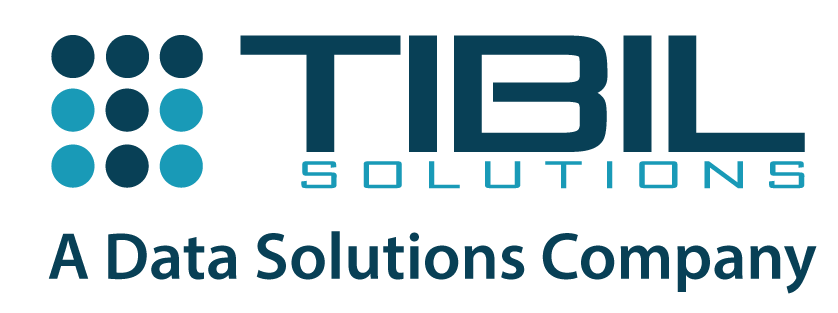
Who says SMBs don’t need or cannot afford Data Analytics?
A question often debated when it comes to Big Data is ‘whether small and medium businesses (SMBs) need to invest in Data Analytics? Moreover, does it give enough ROI?
Some commentators on technology believe that Big Data is for big enterprises; the analytics and visualization needs of an SMB can be achieved with easily available online tools. In addition, we see several cases of big data projects failing in several large enterprises. The heavy buzz around Data Analytics and Data Scientist professions also led some to argue that Big Data is indeed a big bubble and SMBs will better off by staying away.
Every human action and interaction generates some data – some structured, and a lot of it in unstructured form. Companies that are able to capture this data easily and effectively and use it to make intelligent decisions quickly are staying one step ahead of the competition. The puzzle is the complexity, volume and speed at which data is being generated. The solution is in cutting through the maze without burning a hole in the pocket (not to speak of the impact of the large-scale digital transformation of the organization). In this context, the question of whether SMBs need powerful Data Analytics begs an answer.
SMBs, being in the same global market as large enterprises, are exposed to the same potential of Big Data. They deal with customers, play in the same competitive market, are an active part of the social network, comprise a huge chunk of the economy, and have the same ambition to capture the market share (or should we say the customer’s mindshare).
Every business captures some level of data. Irrespective of its size, an organization has the best chance to succeed when it transforms data into insight for shaping its business strategy. So, how does Data Analytics help SMBs?
- As SMBs increase the capability to collect transactional, social and customer data, they will need the ability to process and analyze that data so it becomes useful to the business. The organizations that can do this confidently gain competitive edge, customer satisfaction and financial performance.
- The goal of using analytics is to understand how customers digitally interact with your business and determine means by which you can improve your business’ success through marketing. This includes establishing sales patterns, segmenting users and building data sets that reveal important details about customers’ buying habits. With the right information, you can build effective, targeted marketing campaigns
- Data Analytics is about a shift from retrospective business intelligence to forward-facing actions. Every business tracks its sales and inventory, its revenue and profit performance. When you infuse analytics into that data, you crunch it into forward-looking recommendations for efficiencies, like resource allocation, demand prediction and effective marketing. Further, you can use data from diverse sources (including customer touch points) to tailor your products and services; and design your customer experience.
SMBs also have an advantage when it comes to adopting Data Analytics for their business. They can be very clear about what outcomes they need and be agile in implementing. Instead of hiring Data Scientists or over simplifying the role and scale of Data Analytics, SMBs can take a long view of what they can achieve with Data Analytics. Building on that, they can work with a solutions provider who can offer an ingenious data solution that can be customized to their needs, easily implemented, and scale with their growth. You can talk to Tibil Solutions for such a strategic adoption of Data Analytics.
We do like to hear your views and use cases on how SMBs should create their own custom paths for using Data Analytics for business success.
Related Posts
AI Toolbox: Creative Content Beyond ChatGPT & BARD
Introduction: In the dynamic landscape of artificial intelligence (AI), ChatGPT and BARD have garnered significant attention for their capabilities in natural language processing and music composition. However, a rich tapestry of AI tools exists...
Ethical Considerations in Generative AI: Ensuring Fair and Responsible Data Analytics
Introduction Generative AI, a transformative subset of artificial intelligence, is revolutionizing data analytics and machine learning. It empowers machines to generate data, images, and text that mimic human creativity. While the potential of...
Building a Better Future with Digital Public Goods
The world is on the cusp of digitization! In this era of digitization, we have transformed the way we communicate, interact, and access information. It has not only changed our personal lives but also has brought an evident transformation in the...
The Role of Artificial Intelligence in Cyber Security
In an era characterised by rapid technological advancements and increasing digitalisation, the field of cyber security faces an escalating and ever-evolving threat landscape. As cyber threats become more sophisticated, organisations must employ...
TinyML: The Future of Edge AI
Artificial intelligence (AI) has been a hot topic in recent years and with good reason. AI has the potential to transform countless industries and improve our lives in numerous ways. However, as powerful as AI can be, it also requires a lot of...
The Evolution of Federated Learning
Uber settled an inquiry into a data breach that exposed the personal data of more than 5,00,000 drivers in 2016 by paying $148 million. A GDPR breach resulted in a $57 million fine for Google in 2020. On-growing data privacy and data breach issues...
Subscribe To Our Newsletter
Lorem ipsum dolor sit amet, consectetuer adipiscing elit. Aenean commodo ligula eget dolor. Aenean massa. Cum sociis natoque penatibus et magnis dis parturient montes, nascetur ridiculus mus

Company
About us
Careers
Contact
Awards
Blog
Offerings
Strategy & Consulting
Managed Services
Solutions
Digital Public Goods
Solutions
Data Solutions
Industry Solutions







